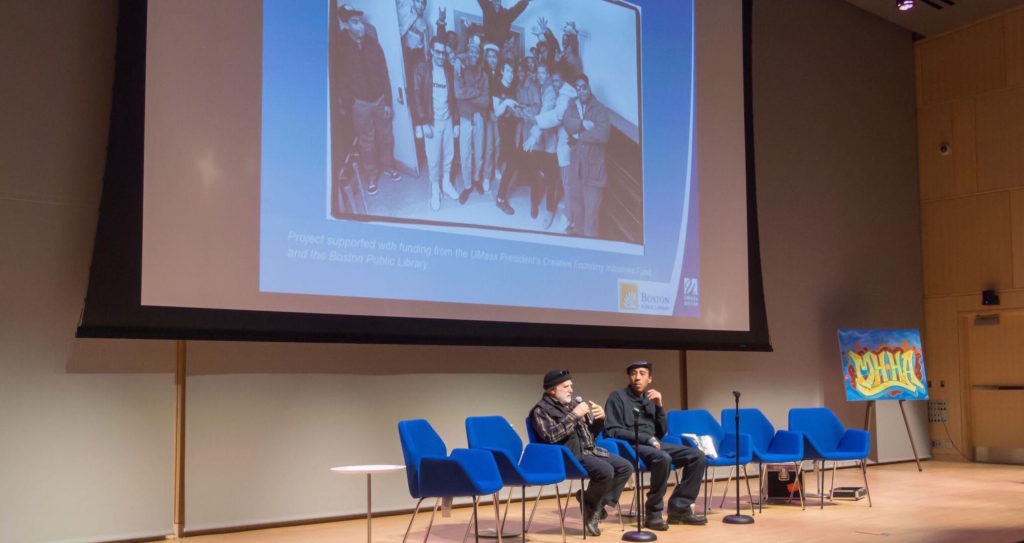By Janette Ebbers, news correspondent
The Boston Public Library (BPL) released a treasure trove of cultural history to the public on Saturday, Nov. 19 at the unveiling of late DJ Magnus Johnstone’s meticulously preserved record collection, which featured music recorded by hip-hop artists in the 1980s.
Panelists discussed the collection as well as cultural appropriation, something hip-hop culture has rarely gone without, at the opening event.
Reebee Garofalo, panelist and professor at the University of Massachusetts Boston, opened the discussion with a frank appraisal of the racial divide in the music industry.
“Musics that were innovated and developed by black artists come to be – when they get popular – identified with white artists, as if they were the originators,” Garofalo said. “And so you have this whole pattern throughout history where Paul Whiteman becomes the king of jazz, and Benny Goodman becomes the king of swing and Elvis Presley becomes the king of rock n’ roll and the Beatles become the king of rock and the interesting thing about rap is that it starts to break the pattern, finally.”
Jamarhl Crawford, author, poet and public speaker from Boston, spoke on the nature of appropriation and emphasized its profitability.
“It might be the most profitable, commodifiable business on the planet right now,” he said. “It certainly has influenced so many different things. You have a president who is constantly quoting Jay Z – a crack dealer from Brooklyn.”
Johnstone’s music collection was converted to digitized format in order to be released, studied and appreciated for the BPL’s archive.
The panel of artists addressed the stigma rap music faces for its sometimes-derogatory subject matter.
Amir “MC Spice” Shakir, panelist and local Boston rapper, emphasized the nature of hip-hop culture as a positive force of celebration.
“Hip-hop is a culture,” he said. “And the culture is founded on four spiritual principles. Those principles is peace, unity, love and having fun.”
Jared “Akrobatik” Bridgeman, another rap artist from Boston, spoke directly and forcefully on the nature of the controversy.
“There’s no reason to come wagging your finger at anybody about hip-hop because people are just people,” he said. “Artists are people. And people have been using these words, people have been talking like this, people have been having these mentalities.”
Mia Young, an audience member, singer and rapper who performs under the stage name mYia X, said that some rap music still hasn’t progressed beyond negative lyrical content.
“A lot of the awakened hip-hop doesn’t get into the ear of our young people,” she said. “You have rap music that’s still misogynistic, that still promotes unhealthy behavior, even at a time where we see that disproportionate amounts of colored people [are] dying, and it’s not just at the hands of the police.”
Crawford said action must be taken in the wake of culture being appropriated.
“If we allow it to happen to us again, shame on us,” Crawford said. “We have to begin to control our own culture […] Boston can’t have this history of racism and then we think that racism has not impacted and permeated hip-hop.”
Photo by Charlie Steiner









